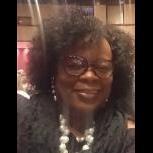-
Posts
4,189 -
Joined
-
Last visited
-
Days Won
121
richardmurray's Achievements
Single Status Update
See all updates by richardmurray
-
Against Mythologizing the Practice of Writing
from Amber SparksI suppose I started writing because it was the easiest way to dump out my imagination and play with it. There were few costs and no barriers to entry, no special tools or equipment or collaborators needed. When I was little and bored, all I needed was a pencil and paper to sketch out an escape plan, another world in all its intricacies and details that I could fly to when I needed it. I could create the friends I lacked in real life on the page. I could pour all my negative feelings into some truly gnarly villains. It was easy, free, and completely satisfying, whether I was writing for five minutes or five hours. I had this easy, casual relationship with writing up through college, largely because I didn’t think of myself as a writer. I was an actor and a musician with a bunch of retail jobs; writing was something I just did for fun, not something I was. So nothing was attached to it, no identity, no expectations, no fanciness. I wrote in the car on vacations, in the breakroom at work, in my notebooks during classes. I wrote and wrote and wrote.
But at some point after I started submitting and publishing stories in my late twenties, and met writers, read blogs, did workshops - I started to notice those expectations creeping in, a slow set of mythologies that started to grow in and around my writing practice. For the first time, I started thinking about writing as a deliberate practice, and not just as an almost automatic action. I think this happens to just about every writer at some point between writing for fun and writing for serious.
I don’t mean the practice of editing your writing and looking at it with a critical eye - that most likely started when you were young, and obviously if you studied writing or edited a magazine or became a teacher, the practice of critically examining your own work deepened, which is a good thing.
No, I’m talking about that other thing - the mythologies around what it means to be A WRITER, to practice and perform the act of writing itself. For example! Every few months, another of those “what my writing day is like” interviews with some famous writer starts circulating on social media, and it usually goes like this: “10 am, emerge lazily from my beautiful French country bedroom wearing a flowing robe that smells slightly of the sea; 11am, sharpen fourteen Blackwing pencils by hand while watching the foxes outside my window feed their young; noon, harvest the day’s honey from my hive of bees while thinking slightly about the characters in my next novel; 2pm, write my ass off; 5pm, drink a glass of port on the veranda while listening to the gentle saw sound of the cicadas and thinking about the impossibilities of life” etc etc.
People unusually share these interviews with a screenshot and a comment reflecting wistfulness or jealousy or aspiration or all three. “ME SOMEDAY” or “THE DREAM,” they proclaim, harmlessly enough, while not realizing that these interviews are being woven into their own internal writing mythologies. A real writer lives in the country! Sharpens fresh pencils! Wakes at 10! Keeps bees! And these notions about what a writer is or should be, and what kind of idealized conditions create truly great writing, start subtly to grow around the writer, like stupid vines, and complicate entry into the once simple act of writing itself. Suddenly the writer who has written on their phone on the subway commute, the writer who scribbles on scraps of paper between diaper changes or shift changes - the writer who doesn’t have a practice of their own, or a room of their own, or even a desk of their own, and has never needed one, starts to feel a sense of inadequacy. They must not be a real writer, because they do not take to an isolated cabin for weeks at a time to write, or have a sacred office space with special writing music and office hours to boot.
There’s nothing inherently wrong with interviews with very famous and established - usually financially secure - writers, about how they write. That stuff is interesting to know! We love to hear about what kind of pens or pencils or software or notebooks others use to get the job done. It’s fun to read. The real problem happens when early or mid-career writers start to internalize these practices and become aware of what they then perceive to be lacking. Because here’s the thing: most of those interviews are with writers who are older, who have already achieved outsized success, both professional and financial, whose children are grown and who are no longer caring for elderly parents. These same writers almost certainly did much of their own best and most urgent writing while working a day job or three, while raising kids, while riding the Metro and running errands, while living in tiny studio apartments in a crowded city. The way that most writers throughout time have written - through necessity, through poverty, through children crawling on their laps and demanding their attention, through whatever it takes to access that imaginative fire.
I would gently suggest (and I tell myself this, everyday!) that these mythologies aren’t really about the practice of writing at all. These “how I write” pieces, for example, have almost nothing to do with being a writer, and the reasons they’re shared have very little to do with being a writer. They’re actually about the dream of being freed from economic anxiety and the wheel of capitalism, and from the various demands on us from our families and loved ones. They’re a dream of “being just a writer,” which is less a dream about writing than a dream about leisure. I see it everyday - despite almost no fiction writer making a living being “just a writer,” emerging writers and mid-career writers alike have made this unlikely reality their goal. It’s no different from planning on winning the lottery as a retirement goal. And I think it not only leads to disappointment and heartache - I think it also leads to less writing. And there comes a point, or at least, there certainly has for me, where you have to start hacking away at the thorny forest of your mythologies (sorry to torture this metaphor) and find the pencil and notebook and the five minutes inside that were all you once needed. That’s your enchanted shit, not the country house and the pencils and the kudzu.
It’s not a lesson to be learned just once, either. It’s a lifelong struggle, I’ve found. As a writer, I constantly fight the feeling of “if only,” feeling I could be a brilliant writer if only I had more time, more space, a real desk, a retreat in the woods. I realized, when talking about my last book in interviews, that I wrote most of it on my phone on commutes and very late at night, when my baby was asleep and I was wide awake. I had that fire in me then, and it blazed its way onto the metaphorical page despite my lack of time, or sleep, or solitude. It was the closest I had been in a long time to that deep mystery, that almost primal urge to tell stories that writers seem to be born with. The ur of writing, to be an asshole about it.
This last year and a half, we’ve all had plenty of opportunity to experience the frustrations of not-writing, as family obligations increased or loneliness encroached, as escapes (even just to coffee shops) became impossible, as illness and sadness and anxiety stood guard at the door, and our writing practice narrowed to very small windows in time and space. For most of us, the dream went from “spend all my time writing” to “ spend any of my time writing,” and a lot of us lost a year plus of our practice entirely.
I’m not going to spin the pandemic as positive in any way - fuck that - but I do think after emerging from the worst of it here in the US, my expectations for what it means to be a writer have changed. I had a disappointing experience last weekend, with a weekend writing retreat I had planned for myself cancelled unexpectedly. I found myself instead where I have been all pandemic, in my apartment bedroom, my child running in and out, writing on a lap desk on my bed. But somehow, I got on with the writing, and somehow, that old feeling, that love of story, that sense of following my characters into the rabbit hole and getting lost with them - it all came back to me and I was no different than me at six or me at sixteen, not being a writer or a Writer, but just spending the time I could with an imaginary world I made. Which is pretty much all I’ve ever wanted to do.








.thumb.jpg.ed52910791d00308abb8c218695bec88.jpg)




